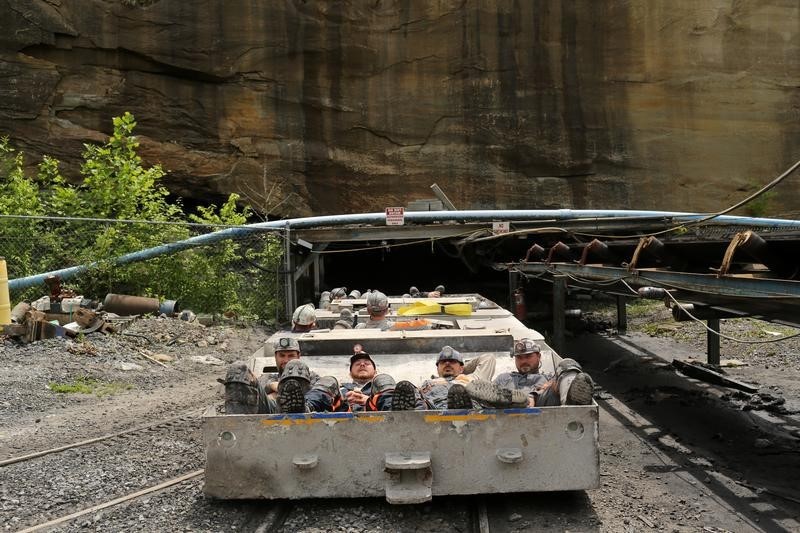* Paris talks to push for cleaner energy, carbon cuts
* But Southeast Asia coal demand expected to triple in long-term
* Appetite in India also seen growing rapidly
* Australia coal has higher energy content than many rivals
By Sonali Paul
MELBOURNE, Nov 13 (Reuters) - As debate swirls around the future of coal, Australian miners are counting on the higher energy content of the coal they dig and proximity to growing Asian markets to give them an edge over rivals and defy a global push towards cleaner energy.
With around $35 billion in projects in the pipeline, the world's No.2 exporter of thermal coal is relying on Asian markets using the cheapest source of power even as they try to contain soaring emissions and choking pollution.
That growth in coal demand comes despite climate change taking centre stage internationally ahead of U.N. environmental talks that kick off in Paris this month, with governments coming under pressure to do more to cut carbon emissions. urn:newsml:reuters.com:*:nL8N12X378
"Eighty years from now when the world's last coal-fired power plant shuts its doors, it'll be burning Aussie coal," said Morgan Stanley (N:MS) commodities analyst Joel Crane in Melbourne.
Increased dominance of regional exports would be a boon for miners operating in Australia such as BHP Billiton (L:BLT) BHP.AX and Glencore Plc GLEN.L , along with Asian companies that have invested heavily in the country like China's Yanzhou Coal Mining Co 600188.SS , India's Adani Enterprises ADEL.NS and Japan's Mitsubishi Corp 8058.T .
Australia's export coal typically has an energy content of 6,100 kilocalories per kilogram, compared with 5,130 kcal/kg from top global thermal coal exporter Indonesia, making it the best quality coal located near Asia's growing markets.
That is particularly appealing for Asian buyers looking to feed newer, less-polluting coal-fired power stations.
"That is why Yanzhou sees this as a strategic long term investment, because it is not beholden to what happens in China," said Reinhold Schmidt, managing director of Yancoal Australia YAL.AX , which is controlled by Yanzhou Coal and operates nine mines in Australia.
The International Energy Agency expects India to overtake China as the world's biggest coal importer in the next five years, projecting Indian coal demand will nearly triple to 1.3 billion tonnes a year between 2013 and 2040. It sees Southeast Asian coal demand more than tripling to 446 million tonnes during that period. urn:newsml:reuters.com:*:nL3N12U29E
NOT AN OPTION
The Philippines wants to increase the use of cleaner fuels but accepts that rejecting cheap coal is not an option as its economy develops, illustrating how Southeast Asia relies on the fuel.
"Market forces dictate how it goes, so you cannot say, 'Oh, don't do coal,'" Philippines energy undersecretary Loreta Ayson said in October. urn:newsml:reuters.com:*:nL3N12R43O
Australia's new prime minister, Malcolm Turnbull, has rejected calls to ban new coal mines, saying it would be better for the environment if developing nations that rely on coal for power-generation use Australian exports rather than dirtier alternatives.
Australia's Greens have described this as a 'drug dealer's defence' and want the country to push for global warming to be held at 1.5 degrees Celsius instead of 2 degrees at the Paris talks.
"We won't do it if (the main political parties) push ahead with new coal mines," Greens leader Richard Di Natale said in a statement this week.
Australia's overall thermal coal exports are forecast to rise 11 percent to 223 million tonnes between 2014 and 2020, according to the country's Department of Industry.
"Although thermal coal prices have been under pressure due to global oversupply, we believe demand will grow in the medium- and long-term, led by India and Southeast Asia," said an official from an Asian company operating in Australia, declining to be identified due to the sensitivity surrounding rising coal use. Prices GCLNWCWIDX have been mired at eight-year lows.
But others are sceptical about the prospects for coal producers in the country.
"There will be a market for Australian coal exports for some time to come, for sure. But it will be at an ever lower price and profit margin," said Tim Buckley, a director at the Institute of Energy Economics and Financial Analysis (IEEFA), which promotes renewable energy. ($1 = 1.4000 Australian dollars)
<^^^^^^^^^^^^^^^^^^^^^^^^^^^^^^^^^^^^^^^^^^^^^^^^^^^^^^^^^^^ GRAPHIC on ASEAN energy demand
http://link.reuters.com/jeh95w
^^^^^^^^^^^^^^^^^^^^^^^^^^^^^^^^^^^^^^^^^^^^^^^^^^^^^^^^^^^>
